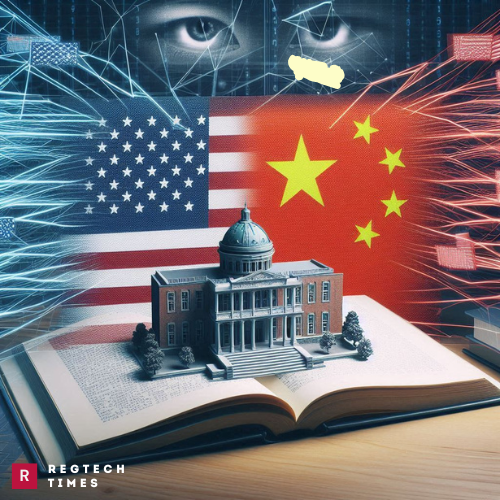In recent months, there have been growing claims that Chinese students studying at American universities might be involved in spying activities. A report from a conservative student newspaper accused Beijing of running a “widespread intelligence-gathering campaign” on Stanford’s campus. This report was cited by Senator Ashley Moody of Florida, who argued that Congress should pass a law to stop all Chinese citizens from getting US student visas.
Similar worries have led to pressure on Duke University to shut down its joint campus with Wuhan University in China, Duke Kunshan, after lawmakers said the partnership was helping Chinese propaganda and intellectual property theft. The University of Michigan also ended its partnership with Shanghai Jiao Tong University after claims that Chinese students were spying near a military site in Michigan.
Following these concerns, the US State Department announced plans to “aggressively” revoke visas for Chinese students who have connections to China’s Communist Party or study “critical fields”. Officials say this is necessary to stop China’s efforts to steal American research and gather intelligence.
Leticia Zheng Exposed in Sinister 7-Year Chinese Espionage Operation at the University of Florida
Experts Say the Risks Are Overblown
But many experts disagree about how serious these spying threats really are. Dennis Wilder, a senior fellow at Georgetown University’s Initiative for US-China Dialogue and a former CIA official, said he does not believe that students on campus are a big national security risk. He explained that open university campuses provide little value for intelligence collection and that fears about control by Beijing are often confused with actual spying.
Wilder also pointed out that Chinese students often worry they are being watched by other Chinese students working for the Chinese embassy — but this does not mean those students are spies. He warned that broadly labelling students as spies wastes resources and distracts from more serious threats, like the case of Su Bin, a Chinese businessman who hacked US military contractor networks.
Rosie Levine, executive director of the US-China Education Trust, highlighted that the conservative student newspaper article used many anonymous sources and personal stories, which makes it hard to judge the true level of risk. Levine fears this could lead to all Chinese students being unfairly suspected based on their nationality rather than any real suspicious behaviour.
Several Stanford faculty members, including Larry Diamond, Matthew Pottinger, and Matt Turpin — the latter two having worked in the White House — wrote a letter urging more careful use of terms like “espionage”. They stressed that spying is a serious crime, and using the term too loosely risks unfair prosecutions and confusion about research security.
U.S. Visa Ban Targets Travel Agents Facilitating Illegal Migration
Impact on Students and Universities
Jeremy Daum, a senior research scholar at Yale Law School, explained that US universities attract top talent from all over the world, including many Chinese students who contribute significantly to American research and development. He pointed to the Justice Department’s China Initiative, which was criticised for focusing on people’s connections to China instead of actual criminal acts.
Levine warned that broad rules targeting Chinese students could unintentionally harm US programmes that benefit Americans. This is already happening in some states, like Florida, where universities have cancelled partnerships with Chinese schools due to new laws.
Jessica Chen Weiss, a professor at Johns Hopkins University, said reports about Chinese spying often exaggerate the risks and ignore the benefits of having Chinese students. She noted that over 90% of Chinese doctoral students in science and technology stay in the US after graduation and that China leads in many technologies, making US fears about intellectual property theft more complex.
Ho-fung Hung, another professor at Johns Hopkins, suggested that clear boundaries should be set about which research areas are off-limits for collaboration, similar to some Cold War-era rules. He added that China could improve the situation by revising laws that require citizens and organisations to spy for the state.
